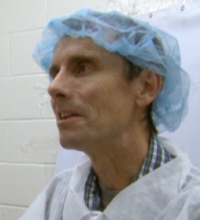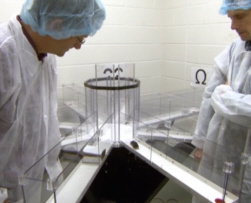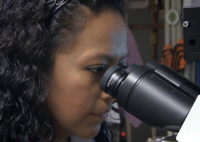Alternate Day Fasting
The Neurological Benefits
Horizon - Eat, Fast and Live Longer

Prof. Mark Mattson
My final stop is Baltimore. I'm here because I need a final bit of motivation. There's one aspect of ageing I find more terrifying than any other. The
effects of ageing on my brain.
I'm trying to catch up with Prof Mark Mattson. Mark is a leading expert on the ageing brain. His research suggests that fasting may help delay
the onset of diseases like Alzheimer's, dementia, and memory loss.
We're heading down into the basement of the National Institute on Ageing. Hidden away down here, there is a special mouse he's keen to show
me. This mouse is exploring a maze. It's a memory test, designed to see how well he remembers where he has found food before.
The mice he studies are destined to develop Alzheimer's disease. Normally, they succumb within a relatively short time, but when these mice
are put on a diet of feast days and fast days, what Mark calls "intermittent energy restriction", the results are incredible.
Mark Mattson "So that the animals on intermittent energy restriction, they'll live much longer with normal, at least, as best as we can test, learning
and memory, before they start having problems."
Significantly longer?
Matt Mattson "Yeah, highly significantly. We found in one study, six months to a year."

Professor Mark Mattson

Mouse Maze
That's the equivalent in a human of the difference between developing signs of Alzheimer's at say, the age of 50, and the age of 80?
Matt Mattson "Yeah, something like that"
On the other hand, when the mice eat a fast-food diet, they will go downhill much earlier.
Mark Mattson "That has a dramatic effect. The animals will have an earlier onset of the learning and memory problems."
So far, they've only done studies in mice, but they're about to carry out human trials. How good is the evidence that if someone like me
were to start on intermittent fasting, it would cut my risk of brain disease, broadly?
Mark Mattson "I think, from a human standpoint, if we go on a scale from poor to good to very good to excellent to outstanding,
it's in the very good to excellent range. That's the way I would categorise it."

Studying Brain Samples

Newborn Brain Cells
So, what's going on? Well, when they examined the brains of the fasting mice, they found something extraordinary. These green objects are
newborn brain cells. Sporadic bouts of hunger actually trigger new neurons to grow.
Why should a brain start to generate new nerve cells when you stop feeding it?
Mark Mattson "If you think about this in evolutionary terms, it makes sense that if you're hungry, you better increase your cognitive ability.
That will give you a survival advantage, if you can remember where the location of the food is and so on."
It seems that fasting stresses your grey matter in the way that exercise stresses your muscles. So hunger really does make you sharper?
Mark Mattson "Yes, we think so."
Mark's research is starting to point towards a simple conclusion.
Mark Mattson "Alternate day fasting has better effects on the brain than does a lower amount of daily calorie restriction."
It's true of mice, but he needs to do proper human trials to prove it's true in us.




